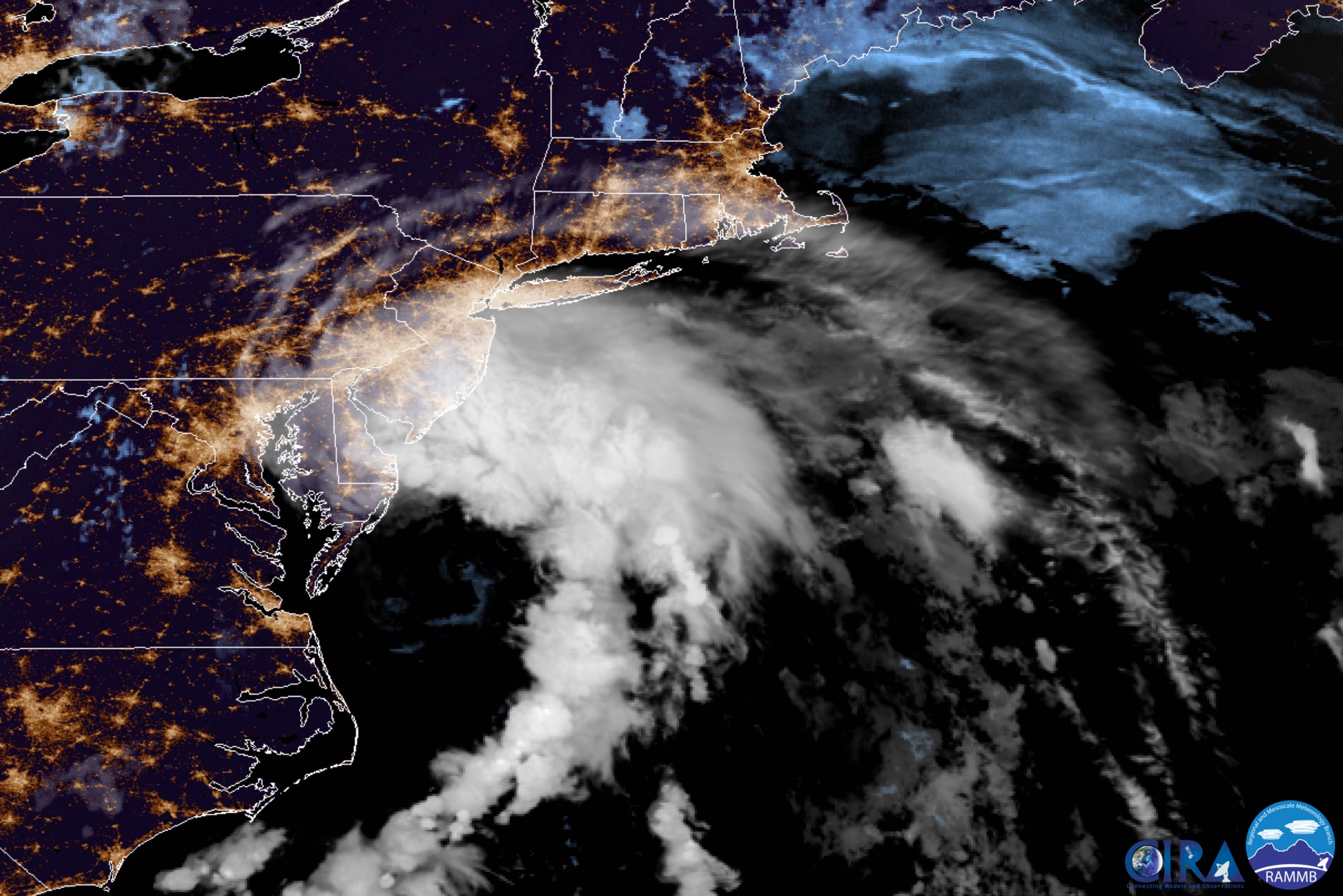Fast-moving Tropical Storm Fay makes landfall in New Jersey
NEW
YORK (AP) — Fast-moving Tropical Storm Fay made landfall in New Jersey
on Friday amid heavy, lashing rains that closed beaches and flooded
shore town streets.
The storm system was expected to bring 2 to 4
inches (5 to 10 centimeters) of rain, with the possibility of flash
flooding in parts of the mid-Atlantic and southern New England, The U.S.
National Hurricane Center said in its 5 p.m. advisory. That’s down from
earlier forecasts of about 3 to 5 inches (8 to 13 centimeters) of rain.
The storm made landfall along the coast of New Jersey about 10 miles
(15 kilometers) northeast of Atlantic City, according to national
forecasters.
Several beaches in Delaware had been temporarily
closed because of the storm. And police in Ocean City asked drivers to
avoid southern parts of the tourist town because flooding had already
made some roads impassable. Some streets in the New Jersey shore towns
of Sea Isle City and Wildwood were flooded, according to social media
posts. Seaside Heights, New Jersey, reported a sustained wind of 37 mph
(60 kph), said forecasters.
A tropical storm warning remained in
effect from Great Egg Inlet New Jersey to Watch Hill, Rhode Island. The
warning area includes Long Island and the Long Island Sound in New York,
forecasters said. Heavy rain was falling in New York City Friday
afternoon as the center of the storm crept northward off the coast of
New Jersey.
“We expect some pretty heavy winds, and we need
people to be ready for that, and some flash flooding in certain parts of
the city,” New York City Mayor Bill de Blasio said at a briefing Friday
morning.
The summer storm’s impact on the city was expected to
be ”pretty limited,” but de Blasio said it would be a bad night for
outdoor dining — the only sit-down service allowed at city restaurants
because of the pandemic.
“If you were going to go out tonight, instead order in and keep helping our restaurant community,” he said.
The
shoreline town of Old Saybrook, Connecticut, was preparing to open the
local high school as a 2,000-person shelter. In a nod to the coronavirus
outbreak, Police Chief Michael Spera they will be handing out masks and
will not be sending residents to the gym or other common areas.
“They
will actually be escorted into individual classrooms,” he said. “If you
take a school and make pretend that it’s a hotel, we’ll be using
individual classrooms like individual hotel rooms.”
He said
families will be allowed to stay together in one room. People who
indicate they have symptoms that might be associated with the virus will
be segregated to a separate area of the school.
President Donald
Trump said the storm is being monitored and that the Federal Emergency
Management Agency was poised to help if needed.
“We’re fully
prepared. FEMA’s ready in case it’s bad. Shouldn’t be too bad, but you
never know,” Trump told reporters while departing the White House for
Florida.
Trump postponed his Saturday rally in New Hampshire due to the weather, Press Secretary Kayleigh McEnany said.
The
storm was moving north Friday afternoon at about 12 mph (19 kph) and
producing top sustained winds of 60 mph (97 kph), forecasters said.
Earlier observations showed it moving at 8 mph (13 kph) with top
sustained winds of 45 mph (75 kph).
Fay is the earliest
sixth-named storm on record, according to Colorado State University
hurricane researcher Phil Klotzbach. The previous record was Franklin on
July 22, 2005, Klotzbach tweeted.
Two named storms formed before the official June 1 start of the hurricane season. None of this season’s previous five named storms strengthened into hurricanes.
Hill reported from Albany, New York. Associated Press writer Pat Eaton-Robb contributed from Columbia, Connecticut.



